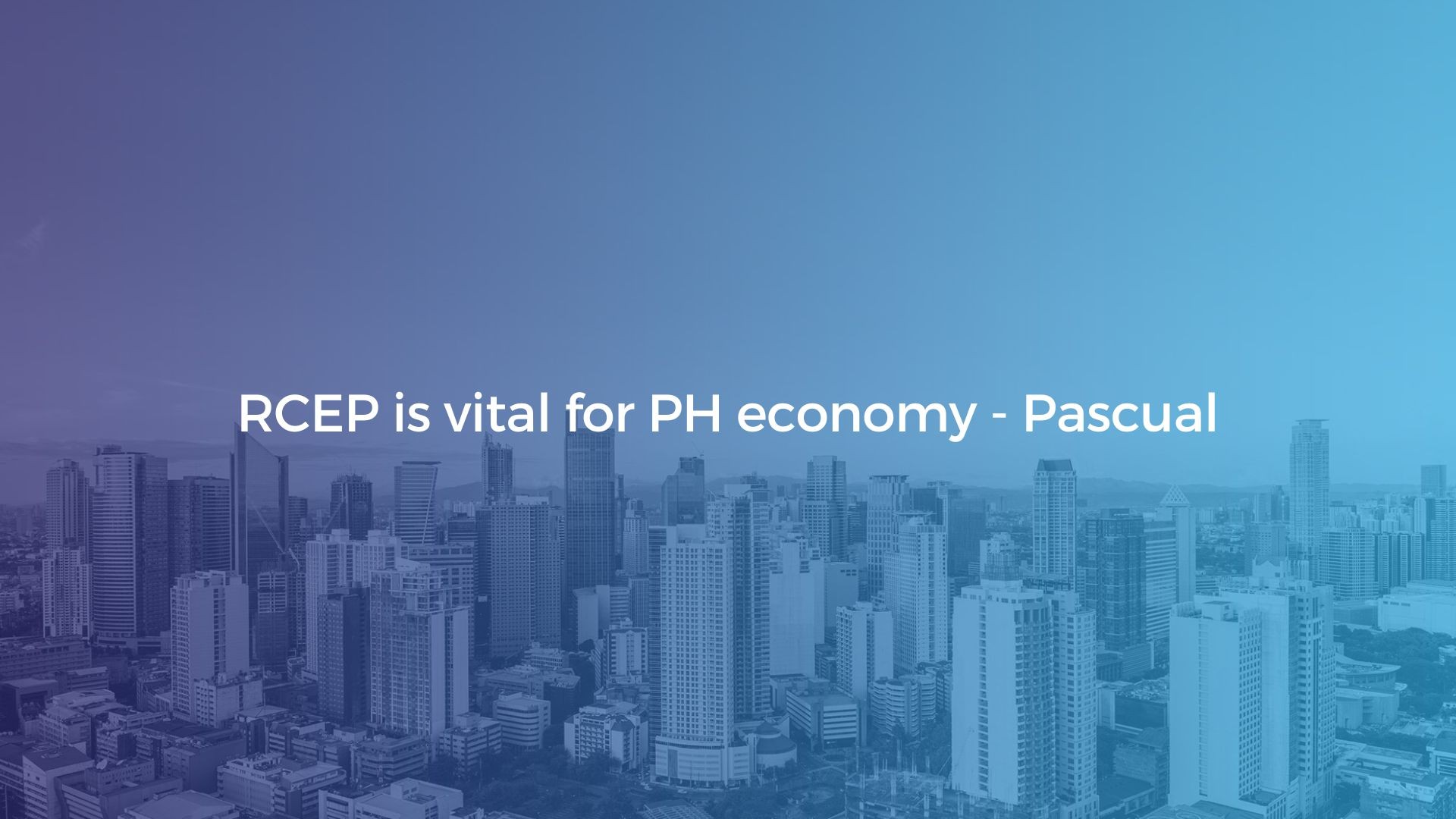
DEPARTMENT of Trade and Industry (DTI) Secretary Alfredo Pascual recognized the need for the country's integration into the Regional Comprehensive Economic Partnership (RCEP) as it will lead toward a more investment-friendly country.
He emphasized that RCEP is vital to open the country to market trade in order to boost investment and become an ideal investment destination in Asia. Thus, it should be viewed as stability of trade and investment.
"True, our country has already implemented game-changing economic reforms. RCEP will complement these reforms and strengthen the country's enabling environment for business," Pascual said.
He further identified this pact as the country's market opportunities that "will open a wide range of investors, particularly in export-oriented enterprises."
"In this era where the center of economic activities is in the region, the Philippines cannot afford not to be part of this mega free trade agreement," Pascual affirmed.
RCEP will also benefit micro, small and medium enterprises that complement the national policies for a vibrant, sustainable and resilient economy.
Meanwhile, Philippine RCEP Chief Trade Negotiator Assistant Secretary Allan Gepty assured that concerns raised by agricultural groups are well addressed in the agreement, stating that if the surge of imports will threaten the local industry, there will be a "suspension of further reduction of customs duties or increase customs duties" as part of the commitments in RCEP.
Gepty further stated that under the World Trade Organization, there is an Anti-Dumping and Countervailing Measures that will safeguard rights.
Biz orgs urges legislators to ratify RCEP
Financial Executives Institute of the Philippines President Michael Guarin took a stand in the country's integration to RCEP by saying that the country will be at a great disadvantage if it will not be part of the agreement.
Guarin affirmed that "it presents a huge market for Philippine exports, as well as allow[ing] the country to import at a lower tariff," because he added that "most of the country's largest trading partners are members of RCEP."
"It is a huge business ecosystem that will benefit our domestic companies as well as attract foreign investment," he explained.
Moreover, European Chamber of Commerce of the Philippines President Lars Wittig urged legislators to ratify the RCEP agreement the "soonest."
"We are encouraged to see that there is a push from legislators to have this by the end of the first quarter," said Wittig.
He added that it would entail further risks of losing out to other countries that are already part of the RCEP if it is delayed.
"There may be loss of significant opportunities in terms of export markets, investments and jobs for Filipinos, but it will yield significant economic benefits for the Philippines," said Wittig.
Philippine Chamber of Commerce and Industry President George Barcelon also took the same stand in supporting RCEP.
"We support RCEP and are cognizant that agriculture sectors need more support in technology and finance," Barcelon said.
"As part of [the] Asean (Association of Southeast Asian Nations) free trade umbrella, agriculture is already part of the multilateral agreement. So shutting ourselves out of RCEP is not advisable," he added.
Meanwhile, Dr. Rene Ofreneo, former undersecretary for Labor Relations of the Department of Labor and Employment, said that the country is not really ready for the RCEP.
"We need a strong capability and readiness program for both industry and agriculture because we are failing in price of products and domestic support such as infrastructures credit, technical assistance, cheap power, etc.," said Ofreneo.
It is because "free trade means a fiercer competition, and the winners are the most capable in terms of quality," he added.